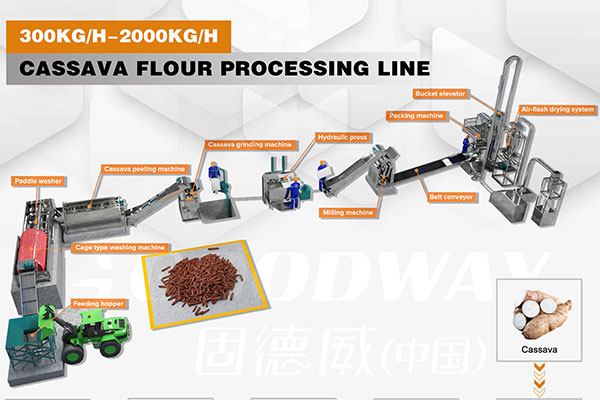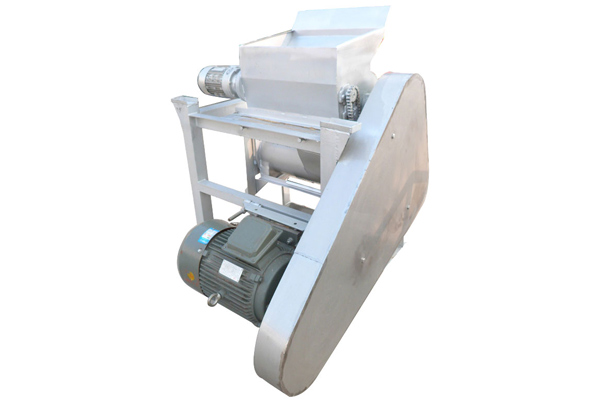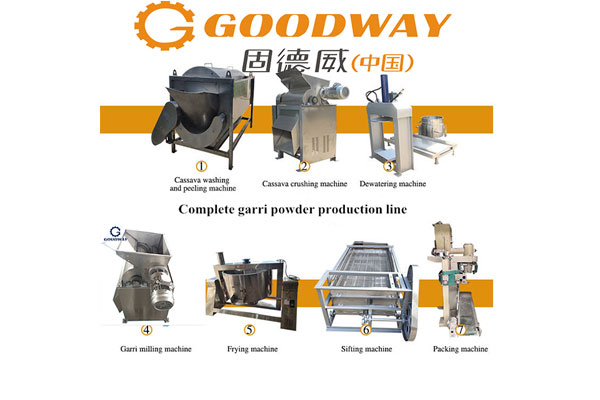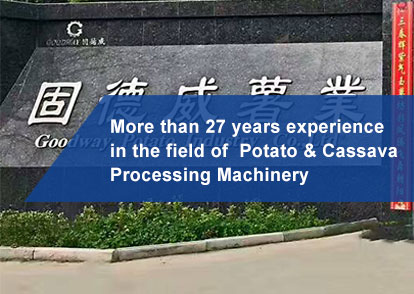The traditional extraction process of sweet potato starch generally adopts a common acid-base treatment process. Almost all the nutrients except for the sweet potato starch are removed, resulting in large consumption of raw materials, low starch yield, serious waste of resources, and insignificant economic benefits. Among them, the main factors that affect the processing yield and extraction rate of sweet potatoes are sweet potato varieties, degree of crushing and grinding, material-to-liquid ratio of crushed slurry, soaking time of acid-base process and pH value of material liquid.
1. Sweet potato varieties processed by sweet potato
The effect of sweet potato varieties on the starch yield is obvious. The starch content of fresh starch-based sweet potatoes is much higher than that of fresh-food types, and the advantages of sweet potato processing are obvious.
2. The degree of crushing and grinding of sweet potato processing
The degree of crushing and grinding mainly depends on the sweet potato cutting machine used. There are simple and small sweet potato crushers on the market, as well as high-end crushing equipment for automatic starch production lines. The former has a low crushing rate of sweet potatoes and a low starch release rate; the latter is a new type of sweet potato crushing equipment with more advanced performance, output and crushing rate, and the starch extraction rate of sweet potato processing is naturally high.
3. The material-to-liquid ratio of the crushed slurry of sweet potato processing
In the traditional acid treatment process, the ratio of material to liquid has a greater influence on the extraction of starch. When processing sweet potatoes for crushing, the difference in material-to-liquid ratio will lead to different crushing conditions and different powder extraction rates.
If the material-to-liquid ratio is too large, the pulverizer will not move, the pulverization will be incomplete, and the raw materials will be wasted. If the material-to-liquid ratio is too small, the amount of solution in the crushing process will increase, the probability of collision between fresh potatoes in the crushing process is reduced, and the production cost in the sweet potato processing and production links will be increased.
Studies have shown that when the ratio of material to liquid is 1:3, the extraction rate of starch reaches a peak, but the extraction rate decreases when the proportion increases.
4. Soaking time in the acid-base process of sweet potato processing
Fresh potato is a fully hydrated compound of starch, protein and cellulose. The purpose of soaking is to remove soluble sugar and prevent excessive browning of starch. Different soaking time has certain influence on the extraction result of starch. It is recommended to keep the soaking time around 2h. If the soaking time is too long, the starch may be partially converted into sugar, and the microbial life activities in the slurry will increase with the prolonged soaking time, resulting in a decrease in the extraction rate of raw starch.
5. The pH value of the liquid of sweet potato processing
In the proper pH range, the protein in the slurry reaches its isoelectric point and can be precipitated with starch. Generally, when the slurry pH is 5, the starch extraction rate is higher. As the value increases, the starch extraction rate decreases.
Although the acid treatment process is not uncommon in sweet potato processing and has the advantage of low cost, the current automated starch extraction process is becoming more and more mature. The sweet potato processing equipment used in the automatic starch extraction process is to extract the sweet potato with high yield and quality without damaging and wasting the internal starch content of the sweet potato. The equipment can quickly process sweet potatoes, effectively improve the flour extraction rate and nutritional value of sweet potato starch, thereby improving the economic benefits of starch and vermicelli related industries. Obviously it is more in line with the needs of modern agricultural products processing.

 EN
EN
 fr
fr  es
es  it
it  pt
pt 







